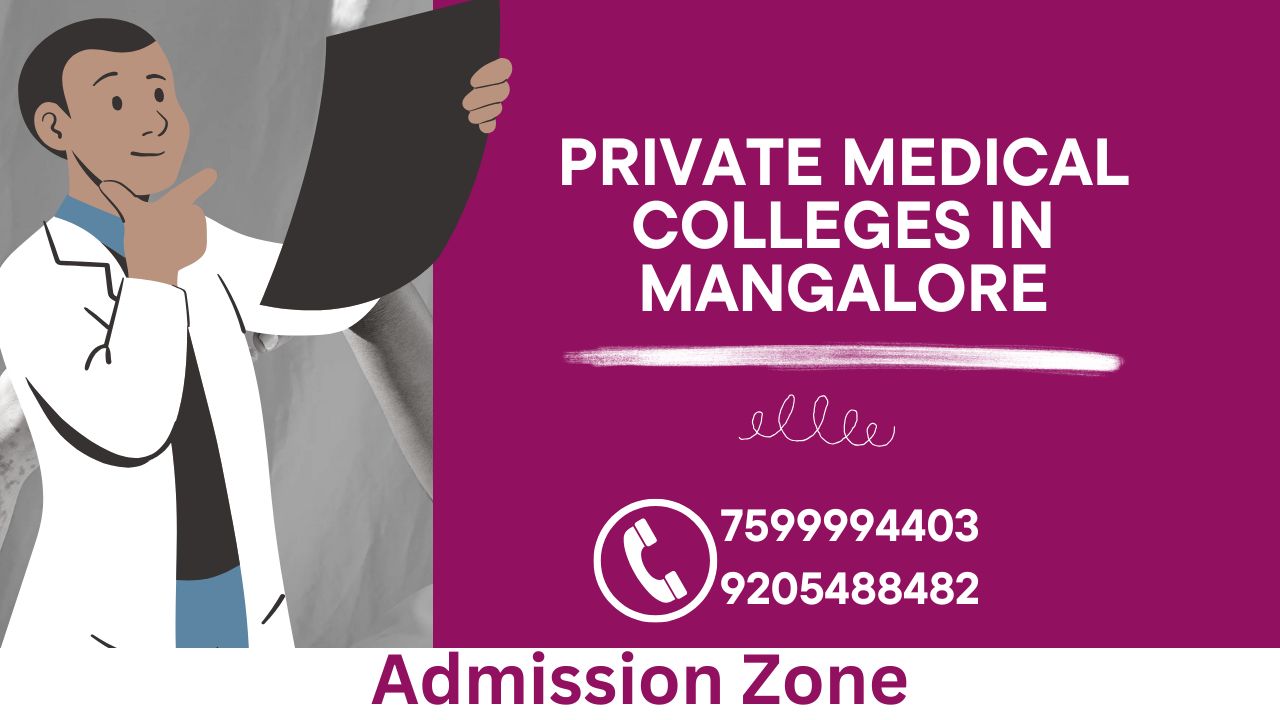
Complete guidance for PG medical admission through management quota with admission support at Admission Zone.
Postgraduate (PG) medical education in India offers specialized courses such as MD, MS, and PG diplomas in various disciplines. The admission process into these courses is through the National Eligibility cum Entrance Test (NEET-PG). However, certain private medical institutions reserve a portion of their seats for management quota admissions, which allows students to get into these courses without the need for NEET-PG rankings. This article is about PG medical admission through management quota on its process, advantages and disadvantages.


Understanding the Concept of Management Quota Seats
PG Medical Admission Through Management Quota
| Aspect | Details |
|---|---|
| Definition | A certain percentage of PG medical seats in private medical colleges are filled through management quota, providing an alternative to merit-based admission. |
| Eligibility Criteria | – MBBS degree from a recognized institution. – Completion of mandatory internship. – NEET-PG score may be required (depending on the college). |
| Seats Availability | Typically, 15-20% of PG medical seats in private colleges are reserved for management quota. |
| Application Process | – Register directly with the college. – Submit necessary documents (MBBS degree, NEET-PG score, internship certificate, etc.). – Pay processing fees if applicable. |
| Admission Process | – Interview/counseling sessions are common. – Candidates may be selected based on interview and qualifications. – Admission confirmed after fee payment. |
| Fee Structure | Fees for management quota seats are typically higher than merit-based seats and may include tuition, hostel, and additional charges like donations or capitation fees. |
| Selection Criteria | – Primarily based on interview and academic performance. – NEET-PG score may or may not be considered based on college policy. |
| Advantages | – Increased chances of admission. – Flexibility in choosing a specialization and institution. – Can bypass intense NEET-PG competition. |
| Challenges | – Higher tuition fees. – Possible lack of transparency in the admission process. – Limited availability of scholarships or financial aid. |
| Documentation Required | – MBBS degree certificate. – NEET-PG scorecard (if applicable). – Internship completion certificate. – Valid ID proof. |
| Key Considerations Before Applying | – Research the college’s reputation, faculty, and clinical exposure. – Evaluate affordability considering high fees. – Ensure the admission process is transparent. |
The management quota consists of the percentage of seats in private medical colleges that are filled directly by the institution’s management. These seats are not part of the merit-based admission process that relies on NEET-PG exam scores. Typically, around 15-20% of total PG medical seats in private institutions are designated as management quota seats. These seats allow candidates to secure admission even if their NEET-PG scores are not at the top, provided they can meet other requirements, including paying a higher fee.
PG Medical Admission 2025
PG Medical Admission 2025 is the process through which doctors can apply for postgraduate medical courses like MD, MS, or diploma programs. These admissions help doctors specialize in specific fields, such as Surgery or Pediatrics, to improve their skills and knowledge. The admission process generally includes entrance exams, counseling, and document verification.
For 2025, candidates should keep checking official notifications from medical councils and colleges. It’s important to prepare well for the entrance exams and complete all formalities on time to secure a good seat in their preferred specialty.
Eligibility Criteria for Management Quota Admission
To apply for management quota seats in PG medical courses, candidates must hold an MBBS degree from a recognized medical college in India or abroad. In addition to this, the applicant must have completed a mandatory one-year internship as per the guidelines set by the Medical Council of India(MCI). Some colleges may also require a valid NEET-PG score, although this requirement can vary depending on the institution and its policies for management quota admissions.
Age and Other Requirements
Candidates must also meet the age limit set by the MCI, and those belonging to specific categories may be eligible for age relaxations. Candidates from reserved categories may enjoy extended age limits, depending on the specific guidelines of the medical college.
Steps Involved in PG Medical Admission Through Management Quota
Application Process and Documentation
To apply for PG medical courses through management quota, candidates need to reach out directly to the college offering such seats. Most private institutions provide online registration facilities for this purpose. The application process generally involves submitting key documents such as:
- MBBS Degree Certificate
- NEET-PG Scorecard (if applicable)
- Internship Completion Certificate
- Identity Proof (Aadhaar card, Passport, etc.)
In addition, some colleges may require candidates to pay an initial processing fee, which could vary depending on the institution. Candidates must complete the application and submit it along with the necessary documents on the deadline.
Medical Admission 2025
Medical Admission 2025 is the process where students apply to study medical programs at colleges and universities. This year, many schools have updated their admission rules to make it easier for students to apply online. Students need to prepare well by studying hard, collecting all their required documents, and appearing for entrance exams.
Getting admitted to medical colleges is important for becoming a doctor. It requires dedication and patience, but it’s also the start of a good career to help others.
Process of Direct Admission in MD MS through Management NRI Quota
Direct admission in MD/MS through management or NRI quota is a way through which some private medical colleges provide their seats without the merit based admission. Here, students can get a seat by paying a higher fee under these special quotas. This process is quick and less competitive but expensive.
However, it’s important to check the college’s authenticity and rules before getting admission from these quotas. Many students choose this option for their convenience and to avoid high marks requirement in the regular admission process.
Documents Required for Direct Admission in MD MS through Management/NRI Quota
For direct admission in MD/MS courses through Management or NRI quota, some important documents are required. These documents generally include your NEET PG scorecard, medical graduation certificate, and mark sheets from your MBBS course. You will also need your identity proof, passport-sized photos, and a transfer or migration certificate from your previous college.If you’re applying under the NRI quota, additional documents like passport and visa copies of the NRI sponsor are required. It’s important to keep all your original documents and their photocopies ready to experience a good admission process.
Selection Process
Once the application is submitted, most colleges require candidates to participate in an interview or personal counseling session. This stage helps the college assess the candidate’s suitability for the course. During the interview, colleges evaluate various factors like academic background, motivation for pursuing medical specialization, and career goals. Based on this evaluation, colleges offer management quota seats.
Fee Structure and Payment Requirements
The fee structure for management quota seats is typically much higher than the fee for merit-quota seats. The total cost of the course includes the tuition fee, hostel fee, and other administrative charges. In some colleges, candidates may also need to pay a donation or capitation fee, which can depend on the institution. It is for candidates to clarify the complete fee structure before proceeding with the application process.
Admission Confirmation and Documentation Submission
After the interview and counseling, candidates who are selected for management quota admission will be notified and must complete the formal admission procedure. This involves submitting the original documents for verification, making the required fee payments, and signing the admission letter. Candidates must ensure they have all documents in order to avoid any delays during the admission process.
Benefits of Choosing Management Quota for PG Medical Admission
Increased Chances of Admission
One of the primary advantages of choosing management quota is the increased chance of securing admission. Private medical colleges often have limited merit-based seats, and competition is high, particularly for popular courses. Management quota provides an alternative pathway, especially for students who did not rank high enough in the NEET-PG exam but still wish to pursue PG medical education.
Flexibility and Multiple Options
Students opting for management quota can apply to multiple colleges, which increases their chances of securing a seat in a preferred institution. The flexibility offered by management quota admissions allows students to select a course and institution that best matches their career aspirations.
Challenges and Drawbacks of Management Quota Admission
High Fees
A significant challenge of management quota admission is the high fee structure. The tuition fee for management quota seats is considerably higher than the fees for merit-based seats. This can lead to a significant financial burden for students and their families. It evaluates the overall cost of the course, including hostel and mess charges, before opting for this route.
Potential Lack of Transparency
The admission process for management quota seats may sometimes lack transparency. Some private colleges may charge excessive donations or fees in addition to the regular tuition costs, which can complicate the process for candidates. It is important to verify the college’s policies and ensure there are no hidden charges before making any payments.
Limited Availability of Scholarships or Financial Aid
not have access to the same scholarships or financial assistance options available for merit-based students. This limits the financial support they can receive during their studies, which can make the high tuition fees even more challenging to bear.
MD MS Admission through Management Quota
Getting admission to MD MS courses through management quota is an option some private colleges provide. It generally means students can secure a seat by paying a higher fee, rather than getting admission through merit-based exams. This can be helpful for those who missed out on regular counseling but still want to start their medical specialization studies.
However, it’s important to check the college’s reputation and rules before getting admission. While management quota provides a chance, students should make sure the quality of education remains good for their future career.
Key Considerations Before Opting for Management Quota Admission
Before choosing the management quota, PG medical education, students should consider several factors to make a good decision:
- Reputation of the College: It is essential to verify the college’s accreditation, faculty, infrastructure, and clinical training facilities to ensure that the institution offers education.
- Affordability: Assess whether the total cost of the program, including tuition, hostel, and other charges, is affordable. Consider the financial implications of taking on such a large amount if necessary.
- Transparency in the Admission Process: Ensure that the admission process is clear, with no hidden costs or arbitrary donations. Students should request detailed information about the admission procedure.
- Post-Graduation Opportunities: Research the opportunities available after completing the PG program, such as internships, placements, and further research options in the desired specialization.

FAQs:
Ans. The necessity of a NEET-PG score depends on the specific medical college. While some colleges may require NEET-PG results, others may admit students based on academic records or other criteria.
Ans. Yes, students can apply to multiple private colleges that offer PG medical courses under management quota. However, each institution may have its own admission process.
Ans. Fees for management quota seats are typically higher than those for merit-based admissions. The exact fee varies from college to college and depends on the course and specialization chosen by the student.
Ans. No, once a student is admitted under the management quota, they cannot switch to a merit-based seat. The two admission routes are separate from each other.
Ans. You can check the official website of the medical college or contact their admissions office for specific information about the availability of management quota seats.
Connect with Us
Start your medical educational journey with the Admission Zone! Contact us today on 9205488482/ 7599994403 or WhatsApp us to explore a world of educational possibilities in the state and secure your admission to a brighter future.
MD / MS ADMISSION IN INDIA — STATE-WISE
Conclusion
PG medical admission through management quota offers a way for students who are unable to secure a merit-based seat. While it provides opportunities to study in private institutions but also comes with financial and ethical challenges. It is important for candidates to research thoroughly, understand the cost implications, and verify the transparency of the process before committing. By considering all aspects of the admission process, students can make a decision that best fits with both their career goals and financial capabilities.







